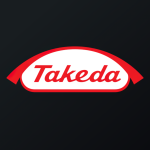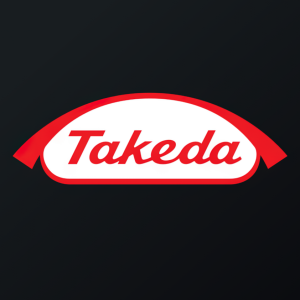Welcome to our dedicated page for Takeda Pharm news (Ticker: TAK), a resource for investors and traders seeking the latest updates and insights on Takeda Pharm stock.
Takeda Pharmaceutical Company Limited (TAK) maintains its position as a global biopharmaceutical leader through continuous innovation in oncology, gastroenterology, and rare disease therapies. This news hub provides investors and healthcare professionals with essential updates on Takeda's operational developments and strategic direction.
Access consolidated information on quarterly earnings, regulatory milestones, and research breakthroughs across Takeda's core therapeutic areas. Our curated news collection simplifies tracking of partnership announcements, clinical trial results, and market expansion initiatives that shape the company's growth trajectory.
Key updates include developments in plasma-derived therapies, neuroscience advancements, and global health initiatives. The resource serves as a centralized platform for monitoring how Takeda's $4B+ annual R&D investment translates into therapeutic innovations and market leadership.
Bookmark this page for real-time updates on Takeda's progress in addressing complex medical needs through science-driven solutions. Stay informed about critical updates affecting one of Japan's most influential pharmaceutical enterprises and its global healthcare impact.
BioLife Plasma Services, part of Takeda, has opened its 200th plasma donation center in the U.S. with new locations in West Springfield, Massachusetts and Pearland, Texas. This expansion is crucial for addressing the increasing demand for life-saving plasma therapies for rare conditions. Each new center generates an estimated $4-5 million in local community contributions and creates around 70 jobs. BioLife emphasizes inclusivity in the donation process and operates over 50 bilingual centers across the U.S., enhancing accessibility for diverse communities.
Takeda's TAK-279, an allosteric TYK2 inhibitor, showed promising results in a Phase 2b clinical trial for moderate-to-severe plaque psoriasis, presented on March 18, 2023, at the AAD Annual Meeting. Involving 259 patients, the trial demonstrated significant efficacy with patients on TAK-279 achieving PASI 75 (44%-67%), PASI 90 (21%-46%), and PASI 100 (10%-33%) compared to placebo (6%, 0%, 0%, respectively; p<0.001). Notably, the 2mg dose did not show significant benefits. Nimbus Therapeutics highlighted the unmet need addressed by TAK-279, steering towards further development in immune-mediated diseases.
Takeda has announced promising results from its Phase 2b trial for TAK-279, a selective oral TYK2 inhibitor, showing significant effectiveness in treating moderate-to-severe plaque psoriasis. Patients receiving dosages of 5mg, 15mg, and 30mg achieved Psoriasis Area and Severity Index (PASI) scores of 75, 90, and 100, substantially higher than the placebo. A Phase 3 study is set to commence in FY2023, along with further evaluations in other immune-mediated diseases such as systemic lupus erythematosus and inflammatory bowel disease. The trial involved 259 patients, with mild to moderate adverse events noted.
Hannon Armstrong Sustainable Infrastructure Capital, Inc. (NYSE: HASI) announced the appointment of Kimberly A. Reed and Jeffrey A. Lipson to its Board of Directors effective March 1, 2023. With this change, the Board now comprises 11 members, 9 being independent. Reed, a former chairman and CEO of the U.S. Export-Import Bank, will add valuable regulatory insight and financial expertise. Lipson, who previously served as COO and CFO, assumes the CEO role, marking a leadership transition for HASI, which manages over $9 billion in assets focused on climate solutions.
Takeda announced significant results from the Phase 3 GRAPHITE study, demonstrating that vedolizumab significantly improved intestinal aGvHD-free survival at Day 180 after allo-HSCT, achieving a response rate of 85.5% compared to 70.9% for placebo (p<0.001). The study, presented at the 2023 Tandem Meetings, also showed no new safety signals with vedolizumab. This treatment addresses a critical unmet need in managing lower gastrointestinal aGvHD, a serious complication after stem cell transplantation. The study included 333 patients and marks an advancement in understanding vedolizumab's role in gastrointestinal inflammatory conditions.
Takeda has completed the acquisition of Nimbus Lakshmi, Inc., acquiring full shares from Nimbus Therapeutics for about 4 billion USD. This significant transaction, announced on December 13, 2022, and finalized on February 8, 2023, includes acquiring the promising asset TAK-279, a selective oral TYK2 inhibitor. Phase 2b data is scheduled for release in Q4 FY2022, with a Phase 3 study aimed at psoriasis expected to commence in 2023. The acquisition enhances Takeda's late-stage pipeline, with potential applications across various immune-mediated diseases, supporting long-term growth.
Nimbus Therapeutics has completed the acquisition of its subsidiary Nimbus Lakshmi, Inc. by Takeda, with an upfront payment of $4 billion. This acquisition includes Nimbus's TYK2 inhibitor program, featuring the oral drug TAK-279. Nimbus anticipates receiving up to an additional $2 billion in sales-based milestone payments. The drug, designed to treat immune-mediated diseases, has shown promising results in a Phase 2b trial for moderate-to-severe plaque psoriasis, meeting its primary efficacy endpoint. Nimbus retains its pipeline for other therapies targeting cancer and autoimmune diseases.
Takeda has received FDA approval for the expanded use of TAKHZYRO (lanadelumab-flyo) as the first prophylaxis treatment for children aged 2 to <6 years with hereditary angioedema (HAE). This approval is based on efficacy data from the Phase 3 HELP and SPRING studies, showing a reduction in HAE attacks by 94.8% in pediatric patients. Previously, children 2 to <6 years lacked approved prophylactic options. TAKHZYRO is already available in over 60 countries and aims to address the needs of HAE patients through ongoing research and clinical programs.
Takeda (NYSE: TAK) reported strong Q3 2022 results with a 13.9% increase in revenue and 4.5% core revenue growth at constant exchange rates. Net profit rose 18.4%, and EPS rose 19.6%. The company approved the dengue vaccine QDENGA® in the EU and received priority review from the U.S. FDA. Takeda also announced an agreement to acquire a TYK2 inhibitor from Nimbus Therapeutics for USD 4 billion, enhancing its pipeline in autoimmune diseases. Despite revenue increases in most segments, oncology revenue fell 13% due to generic competition for VELCADE®.
Takeda Pharmaceutical has secured an exclusive licensing agreement with HUTCHMED for the development and commercialization of fruquintinib outside China, Hong Kong, and Macau. Fruquintinib, an inhibitor targeting VEGFR-1, 2, and 3, is aimed at treating refractory metastatic colorectal cancer (CRC). Takeda will pay HUTCHMED $400 million upfront, with potential additional payments of up to $730 million based on regulatory and sales milestones. The drug has shown promise in clinical trials and received Fast Track designation from the FDA. This partnership aims to enhance Takeda's oncology portfolio and expand treatment options for CRC patients.


